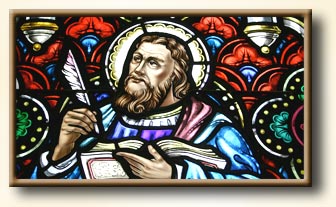|
The Book of Common Prayer sets aside September 29th each year as the feast day of St. Michael and All Angels. Clearly, Anglicanism believes in angels. The Reformers who influenced the shape of the Church of England and modern Anglicanism discarded other feasts devoted to angels, but this one they retained. And an ancient celebration it is, going back to the fifth century.
The word “angel” means literally a “messenger” and belief in these messengers of God is very old. It came into the Hebrew religion fairly late and although not accepted by the Sadducees, it was accepted by the Pharisees and appears to have been popular among the people. Angels present a difficult concept to the modern mind, based as that mind is upon scientific fact and research. But we still take many things, including the existence of God, on faith and there is no reason not to take the existence of angels on faith.
The Old Testament is full of references to angels and their activities. We have only to remember the two angels who came to Sodom to warn Lot; and Jacob’s various experiences with angels, especially the one who wrestled with him; and Daniel’s deliverance from the mouths of the lions by an angel.
The New Testament is similarly filled with the references to angels. Gabriel was the messenger of the Annunciation to Mary. Angels announced the Nativity to the shepherds and sang the Gloria in Excelsis that night. Angels ministered to the Lord when he fasted in the wilderness (and even Satan testified to their existence!). An angel strengthened the Lord on the last night as He prayed on the Mount of Olives. An angel rolled the stone away from the tomb. Angels announced to the Apostles Christ’s Ascension into Heaven. These are only a few of many references.
Clearly, too, our Lord believed in angels. When one of Jesus’ followers cut off the ear of the high priest’s servant as Jesus was being betrayed and arrested, the Lord stayed him and reminded him that if He needed support, He could easily call upon the Father to send him twelve legions of angels. Christ also made other references to angels.
The Bible testifies to the existence of angels, superhuman messengers and servants of God. Christ testified to their existence. Though relatively few Anglicans have met angels face to face, we must surely believe in their existence, work and presence if we base our religious faith upon the Holy Scriptures and belief in our Saviour, Jesus Christ.
By some process unknown to us, four angels became assigned to a special category called archangels. The canonical books of the Bible name two of these as Michael and Gabriel. The other two, Raphael and Uriel, are mentioned in the Old Testament Apochrypha (which the Anglican Articles of Religion proclaim useful for instruction, but do not accept as fully authoritative.)
Angels, as recorded in the Bible and as experienced by many people throughout the ages, are messengers of God, serving many purposes -- conveyors of God’s decisions and wishes, executors of his will, guardians and helpers of his people. Anglicans believe in them and should join with gratefulness in the annual celebrations of praise for them on the feast day of St. Michael and All Angels.
|



